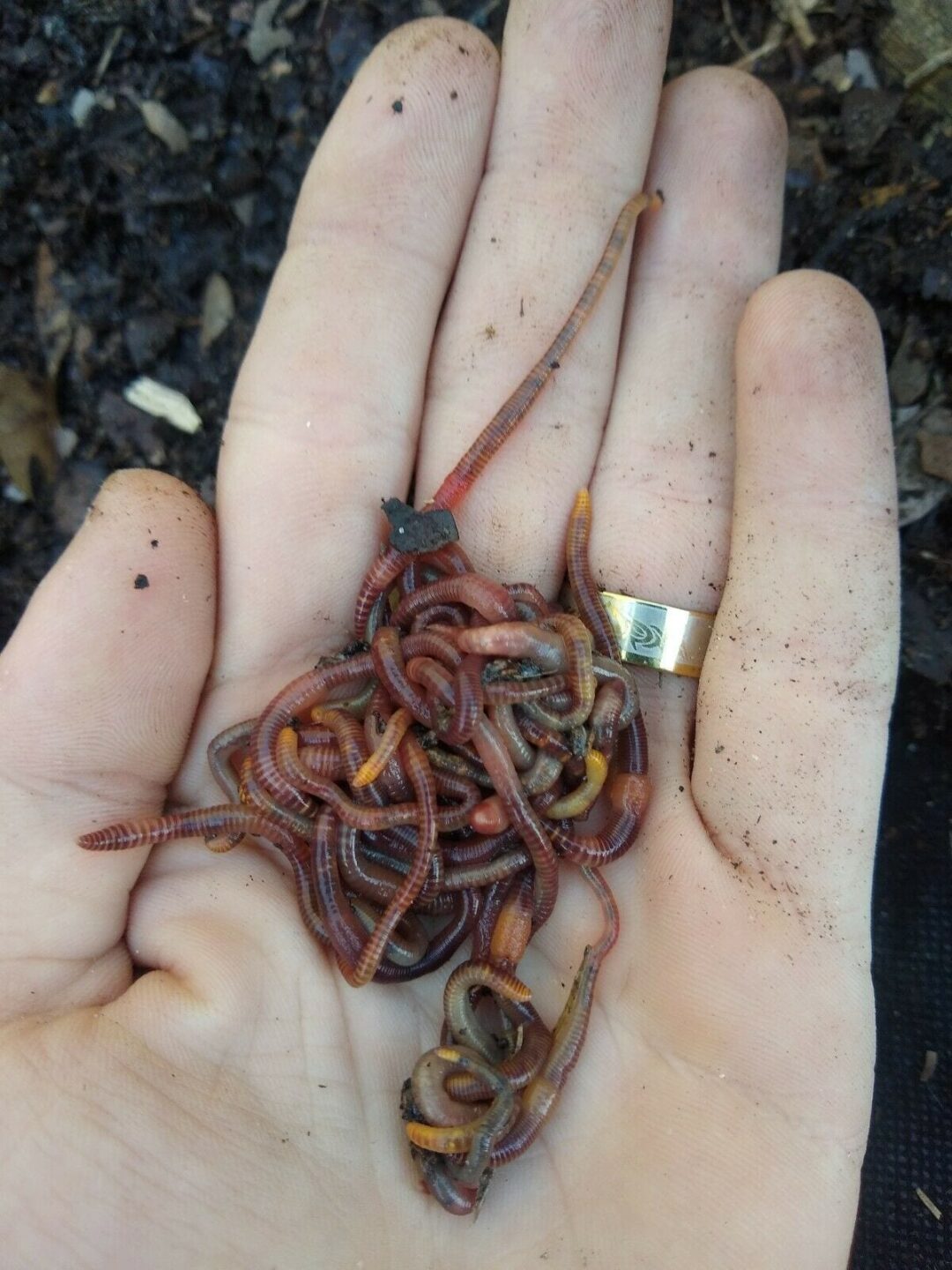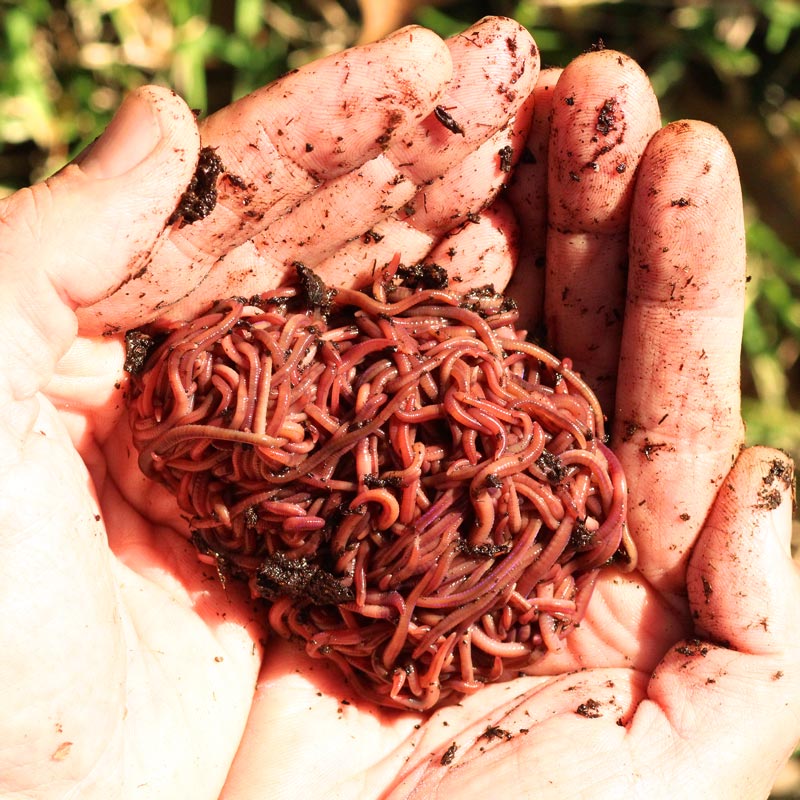Enhance Your Lawn’s Health and Beauty with Red Wiggler Express Lawn Care Services
Enhance Your Lawn’s Health and Beauty with Red Wiggler Express Lawn Care Services
Blog Article
Red Wigglers: The Unsung Heroes of Organic Waste Recycling
Red wigglers, or Eisenia fetida, offer as vital representatives in the natural waste recycling process, changing disposed of materials into important vermicompost. Their efficient break down of natural issue not only enhances soil high quality but additionally contributes to lasting waste administration techniques. As the globe progressively seeks remedies to deal with waste buildup and enhance farming efficiency, understanding the function of these worms comes to be important. What mechanisms enable them to thrive in compost environments, and just how can they be successfully utilized in both household and business settings? Exploring these inquiries discloses the wider effects of vermicomposting in our eco-friendly landscape.
What Are Red Wigglers?
The remarkable strength of red wigglers, scientifically known as Eisenia fetida, emphasizes their critical duty in organic waste recycling. These small, reddish-brown earthworms are typically located in disintegrating organic issue, such as compost heap and manure stacks. Lake Hickory Bait. Unlike various other earthworm species, red wigglers thrive in nutrient-rich settings and are highly reliable at breaking down organic products, making them important for vermicomposting

(Lake Hickory Bait)In addition to their duty in waste reduction, red wigglers add to soil health by enhancing soil structure and aeration via their burrowing activities (Lake Hickory Bait). Their presence in composting systems not only enhances decomposition prices yet likewise advertises a sustainable strategy to throw away administration, highlighting their relevance in ecological preservation efforts
Benefits of Composting With Worms
Composting with worms, especially red wigglers, provides various advantages that enhance both waste administration and soil wellness. These worms successfully damage down organic waste, transforming it into nutrient-rich vermicompost that enhances dirt. This procedure increases decomposition, enabling for a quicker recycling of cooking area scraps and various other natural materials contrasted to traditional composting approaches.
Furthermore, the vermicompost created by red wigglers is including valuable microorganisms, which assist improve dirt framework, oygenation, and wetness retention. This enhances the general health and wellness of plants, promoting strenuous growth and enhanced yields in yards and agricultural setups. The use of worms in composting minimizes the production of greenhouse gases, such as methane, adding to an extra sustainable waste administration system.

Just How to Start Vermicomposting
Establishing a vermicomposting system is an uncomplicated process that can produce significant benefits for both waste monitoring and soil enrichment. To begin, select a suitable container, such as a plastic bin or wooden box, with adequate air flow holes to guarantee proper air flow. The measurements should ideally be about 2 feet by 3 feet, enabling sufficient area for the worms to prosper.
Next, prepare bed linen product, which can contain shredded newspaper, cardboard, or coconut coir. This bedding ought to be dampened to develop an appropriate habitat for the worms. Once the bed linens remains in area, introduce red wigglers (Eisenia fetida) right into the container, typically around one pound of worms for each square foot of surface location.
Complying with the positioning of worms, add organic waste, such as fruit and veggie scraps, coffee grounds, and smashed eggshells. Prevent adding milk, meat, or oils, as these can produce odors and draw in parasites. Finally, place the container in a shaded, temperature-controlled location to preserve optimal problems for worm activity. With these steps, you will efficiently launch a vermicomposting system that adds to lasting waste management and improves your soil.
Preserving a Healthy Worm Bin
(Lake Hickory Bait)Keeping a worm container growing requires normal focus and care to make certain the health and wellness of the red wigglers and the performance of the composting procedure. Correct maintenance begins with monitoring the dampness degrees; the container must be damp yet not saturated. A great general rule is to preserve an uniformity comparable to a wrung-out sponge.
Carefully mixing the bed linens and food scraps every couple of weeks avoids compaction and makes certain that all worms have access to oxygen. Additionally, it is crucial to feed the worms properly.
If the bin comes to be as well warm or cool, the worms may come to be worried. By vigilantly handling these elements, one can preserve a durable and productive worm bin.
Influence On Lasting Living
The effective maintenance of a worm bin not just profits the wellness of red wigglers however likewise adds considerably to sustainable living practices. By recycling organic waste, such as kitchen scraps and yard particles, red wigglers aid divert substantial amounts of product from land fills. This decrease in waste not just lowers greenhouse gas exhausts but also reduces the environmental concern linked with waste monitoring.
Moreover, the castings created by red wigglers serve as a nutrient-rich organic fertilizer, enhancing soil wellness and promoting plant growth. This natural option to chemical plant foods sustains lasting farming and horticulture techniques, minimizing reliance on artificial inputs that can harm communities. Additionally, worm composting cultivates understanding of waste monitoring, encouraging individuals and communities to read this article embrace more lasting habits.

Verdict
In summary, red wigglers serve as vital contributors to natural waste reusing through their reliable disintegration of organic products. By integrating vermicomposting right into waste monitoring techniques, people and areas can substantially lower waste while promoting ecological sustainability.
Report this page